The Providence College Humanities Forum SP2024

Spring 2024 Humanities Forum Schedule
The Humanities Forum is an opportunity for members of the Providence College community to engage regularly in intellectual life outside of the classroom, deepen their appreciation for the humanities, and explore diverse perspectives from on and off campus. All are welcome.
If you do not have a Providence College email address, you may request to receive our regular email announcements by sending an email to pbelcher@providence.edu.
January 26 , 2024
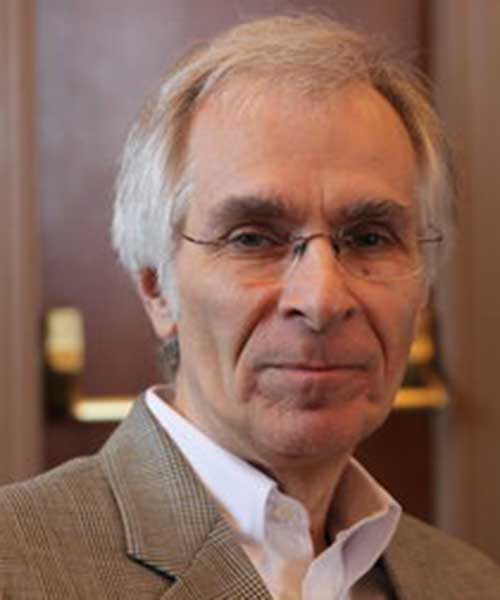
America’s Death Penalty: Does Anyone Deserve to Be Put to Death?
Austin Sarat ’69, ’08Hon.
William Nelson Cromwell Professor of Jurisprudence and Political Science; Chair of Political Science, Amherst College
Friday, January 26 at 3:30 p.m.
Ruane Center for the Humanities 105
Should the United States as a country stop using the death penalty? This question contains moral, prudential, and constitutional considerations. Is the death penalty ever justified, such as for the most heinous crimes? Or, is the death penalty always cruel and unusual punishment as outlawed by the Constitution? Does it act as a deterrent to extremely dangerous criminals? Alternatively, should it be suspended for practical reasons, because it is costly and often unfairly administered? Austin Sarat, an internationally renowned scholar of capital punishment, specializing in efforts to understand its social, political, and cultural significance in the United States, will investigate these questions.
Read more about this event.
Austin Sarat is a pioneering figure in the development of legal study in the liberal arts and of the humanistic study of law. He is the founder and former President of the Association for the Study of Law, Culture, and the Humanities, and the author of more than ninety books, including Lethal Injection and the False Promise of Humane Execution, The Death Penalty on the Ballot: American Democracy and the Fate of Capital Punishment, and Gruesome Spectacles: Botched Executions and America’s Death Penalty. His public writing has appeared in such places as The Washington Post, The Guardian, USA Today, The Los Angeles Times, and The Huffington Post.
February 2, 2024
Ex Corde Ecclesiae Lecture
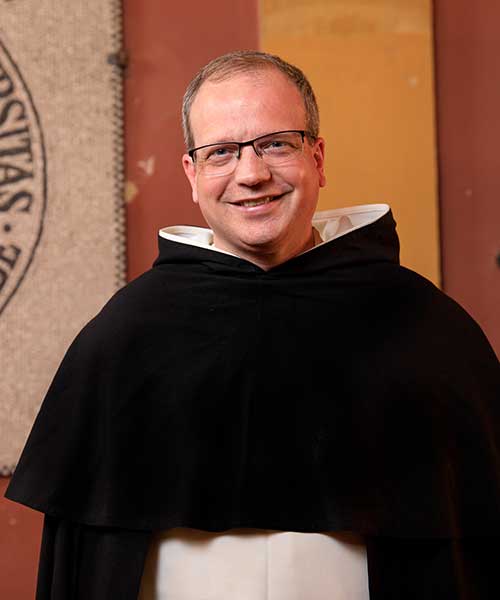
Can the Trinity Be Understood? Aquinas on God as the Explanation for Human Existence
Rev. Thomas Joseph White, O.P.
Rector Magnificus of the Pontifical University of St. Thomas (Angelicum) in Rome
Friday, February 2 at 3:30 p.m.
Ruane Center for the Humanities 105
The Trinity is sometimes said to be a mystery that no one can understand or explain. Is this really true? Thomas Aquinas distinguishes between the knowledge of God we can have by natural reason and that which we can have by faith. Each provides a distinct knowledge of God and an ultimate perspective on creation. How does knowledge of the Most Blessed Trinity in Christian revelation allow us to better understand the human person and the meaning of human existence? This question lies at the heart of Catholic education, and Aquinas provides us with insightful answers as we consider it.
Read more about this event.
Father Thomas Joseph White is the Rector Magnificus of the Pontifical University of St. Thomas (Angelicum) in Rome. Originally a native of southeastern Georgia in the US, Father White studied at Brown University, where he converted to Catholicism. He did his doctoral studies in theology at Oxford University, and is the author of various books and articles including Wisdom in the Face of Modernity: A Study in Thomistic Natural Theology (Sapientia Press, 2011), The Incarnate Lord, A Thomistic Study in Christology (The Catholic University of America Press, 2015) Exodus (Brazos Press, 2016), The Light of Christ: An Introduction to Catholicism (Catholic University Press, 2017), and The Trinity: On the Nature and Mystery of the One God (Catholic University Press, 2022). He is co-editor of the journal Nova et Vetera, a Distinguished Scholar of the McDonald Agape Foundation, and a member of the Pontifical Academy of St. Thomas Aquinas.
February 9, 2024
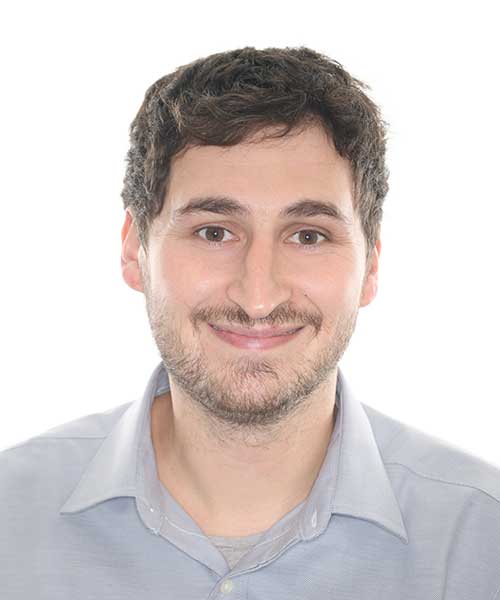
Why Has the Diversity Industry Promised So Much and Delivered So Little?
Jesse Singal
Author and journalist
Friday, February 9 at 3:30 p.m.
Ruane Center for the Humanities 105
In recent years, a large, loose industry of diversity experts has had a tremendous impact on organizations of all sizes, promising to improve intergroup relations and make life easier for members of traditionally marginalized groups facing discrimination and ostracization. Ranging from psychologists to activists to consultants, these entrepreneurs have developed and popularized a variety of cutting-edge concepts that, they claim, are key to such efforts: implicit bias, white fragility, affinity groups, and others. While accurate numbers are hard to come by, a conservative estimate suggests hundreds of millions of dollars have been spent on these approaches. Unfortunately, there’s no evidence any of them actually work, and solid circumstantial evidence some of them could have the exact opposite of their intended effect. Jesse Singal, a journalist and author who has been writing about the diversity industry for almost a decade, will explain the current lay of the land, why popular but bankrupt approaches catch on, and what a better, more evidence-based approach to diversity would look like.
Read more about this event.
Jesse Singal is cohost of the podcast Blocked and Reported, the author of the newsletter Singal-Minded and the book The Quick Fix: Why Fad Psychology Can’t Cure Our Social Ills, and a former editor at New York Magazine. He has written for The New York Times, The Atlantic, The Boston Globe and other major outlets.
February 13, 2024
In collaboration with the Dialogue, Inclusion, and Democracy (DID) Lab
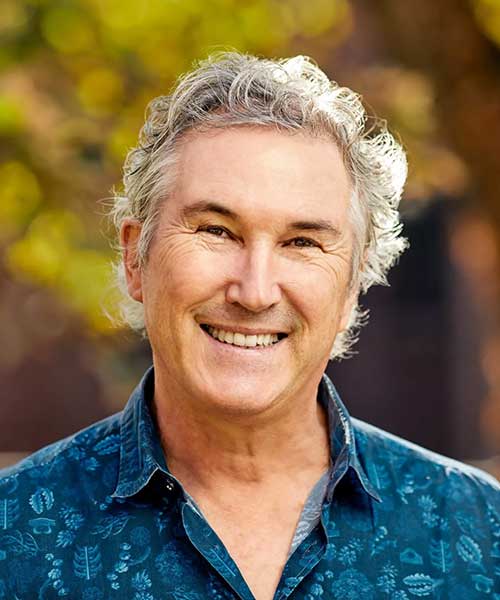
When Providence College Speaks, What Should It Say?
John Tomasi
President of Heterodox Academy
Tuesday, February 13 at 4:00 p.m.
Moore Hall
Institutions of all stripes “speak” in ways that influence the speech or thoughts of their members. Colleges are no exception. Universities “express their values” not just via formal statements from the office of the president, but in subtler ways—from the naming of buildings and placing of monuments to the awarding of honorary degrees and even the invitation of speakers. But does this institutional expression undermine free inquiry and viewpoint diversity? For a university to remain true to its truth-seeking mission, ought it pursue a policy of “institutional neutrality” instead? “A university, if it is to be true to its faith in intellectual inquiry, must embrace, be hospitable to, and encourage the widest diversity of views within its own community,” argued a 1967 report by the Kalven Committee for the University of Chicago. John Tomasi will invite you to consider how the ideal of neutrality might be appropriate to Catholic or faith-based colleges generally, and to Providence College in particular.
Read more about this event.
John Tomasi is the inaugural President of Heterodox Academy, a nonpartisan, nonprofit membership organization of thousands of faculty, staff, and students committed to advancing the principles of open inquiry, viewpoint diversity, and constructive disagreement to improve higher education and academic research. Prior to joining HxA, he held the position of Romeo Elton 1843 Professor of Natural Theology at Brown University, where he founded and directed the Political Theory Project. He is the author of The Individualists: Radicals, Reactionaries and the Struggle for the Soul of Libertarianism, Free Market Fairness and Liberalism Beyond Justice: Citizens, Society and the Boundaries of Political Theory—all published by Princeton University Press—as well as numerous book chapters and journal articles.
February 23, 2024
In collaboration with the Jewish-Catholic Theological Exchange, the Department of History & Classics, and the Gladys Brooks Foundation
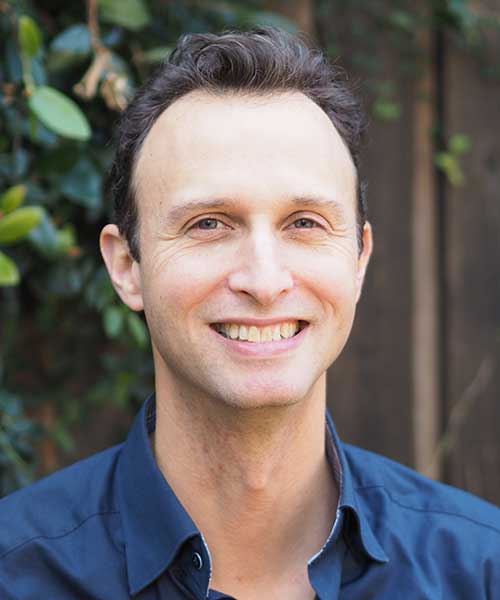
How Histories of Injustice Get Told: Roma, Jews, and the Holocaust
Ari Joskowicz
Associate Professor of Jewish Studies and European Studies and History, Vanderbilt University
Friday, February 23 at 3:30 p.m.
Ruane Center for the Humanities 105
From concentration camps and ghettos to the murder sites of mobile shooting squads, Jews and Roma experienced Nazi persecution in close proximity to each other. Yet, after the war, the world recognized the injustices both groups faced differently. While Jewish persecution histories became memorialized in museums, monuments, and college courses, the international community largely ignored the Roma genocide. How should we tell the story of the Holocaust in light of this unequal treatment?
Read more about this event.
Ari Joskowicz is a historian of European Jewry and the Holocaust with a special interest in the complicated relations between different minority groups. He is the chair of the Department of Jewish Studies at Vanderbilt University, where he teaches on the Holocaust and the history of antisemitism. His most recent book is called Rain of Ash: Roma, Jews, and the Holocaust, which appeared this spring and won the Frankel Prize for the year’s best book in Holocaust studies.
March 1, 2024
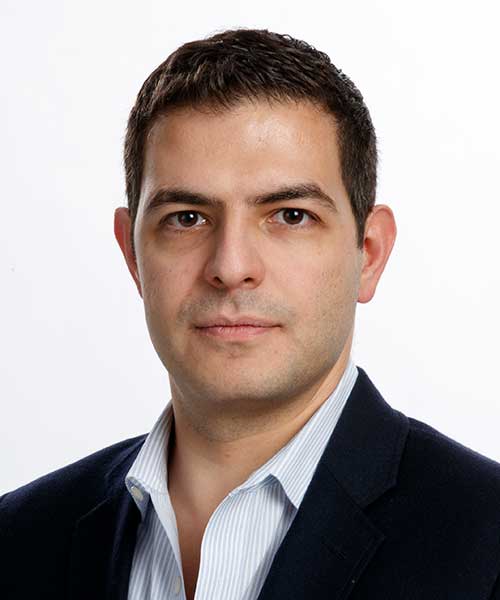
Privatizing Emergency
Sohrab Ahmari
Author and journalist
Friday, March 1 at 3:30 p.m.
Ruane Center for the Humanities 105
We tend to think of coercion as only what governments do to us. Yet the private economy, where we spend most of our lives as workers and consumers, is shot through with coercion. And too often, our neoliberal order protects such coercion from legal and political challenge, thus giving rise to what Sohrab Ahmari calls private tyranny. One glaring symptom is the privatization of firefighting and other emergency services that used to be taken for granted as public goods. Drawing on his new book, Tyranny, Inc., Ahmari will tally the costs of such stealth privatization to patients, workers, taxpayers, and pension systems.
Read more about this event.
Sohrab Ahmari is a founder and editor of Compact and a contributing writer for The New Statesman. Previously, he spent nearly a decade at News Corp., as op-ed editor of the New York Post and as a columnist and editor with the Wall Street Journal opinion pages in New York and London. In addition to those publications, his writing has appeared in The New York Times, The Washington Post, The Atlantic, Chronicle of Higher Education, Times Literary Supplement, Commentary, Dissent, and The American Conservative, for which he is a contributing editor. Ahmari’s books include Tyranny, Inc.: How Private Power Crushed American Liberty — and What To Do About It (2023) and The Unbroken Thread: Discovering the Wisdom of Tradition in an Age of Chaos (2021), both published by Penguin Random House.
March 22, 2024
In collaboration with the C.S. Lewis Fellowship
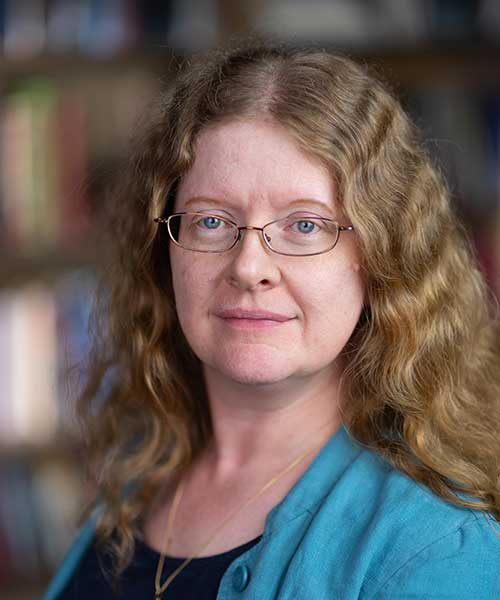
Faith, Friendship, and Fantasy: JRR Tolkien and CS Lewis’s Mutual Influence
Holly Ordway
Cardinal Francis George Professor of Faith and Culture at the Word on Fire Institute
Friday, March 22 at 3:30 p.m.
Ruane Center for the Humanities 105
Tolkien’s epic The Lord of the Rings and his other Middle-earth writings are internationally popular, loved by millions who do not share his religious beliefs. Yet Tolkien declared, “I am a Christian (which can be deduced from my stories).” How was Tolkien’s faith related to his fiction? We will explore this question biographically, with special attention to his deep friendship with C.S. Lewis – including the question of whether Narnia would have existed without Middle-earth.
Read more about this event.
Holly Ordway is the Cardinal Francis George Professor of Faith and Culture at the Word on Fire Institute, and Visiting Professor of Apologetics at Houston Christian University. She holds a PhD in English from the University of Massachusetts and is a subject editor for the Journal of Inklings Studies. She is the author of the award-winning Tolkien’s Modern Reading: Middle-earth Beyond the Middle Ages, and has contributed chapters on Tolkien, C.S. Lewis, and the Inklings to volumes such as C.S. Lewis in Poets’ Corner, The Inklings and King Arthur, and C.S. Lewis’s List. Her book Tolkien’s Faith: A Spiritual Biography was released in time for the 50th anniversary of Tolkien’s death.
April 5, 2024
St. Thomas Aquinas Lecture
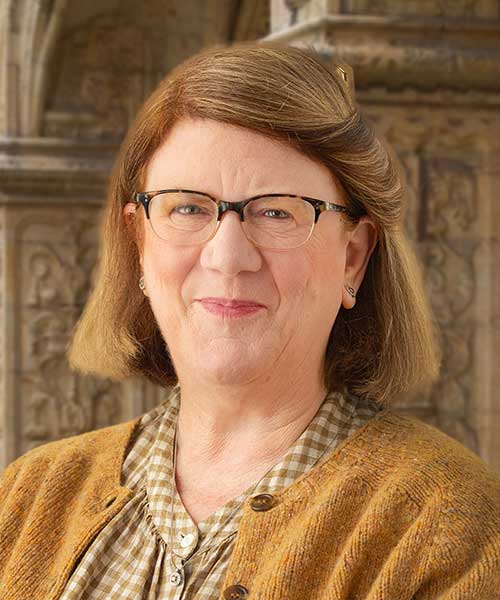
What Happened in 1968?
Tracey Rowland
St. John Paul II Chair of Theology, The University of Notre Dame Australia
April 5 at 3:30 p.m.
Ruane Center for the Humanities 105
Do you know what the expression “generation of ’68” means? Have you heard about the Battle of Valle Giulia? Hippy nuns in California? The Lemon Pipers? Critical Theory? The national strike in France that almost brought down the government? 1968 was a watershed year in history, one whose influence on the Catholic Church and the western world is still directly felt today. It forever changed American and European politics and social norms, all the way down to the words you hear at Mass. But too little is known or remembered today about this pivotal year. At the 2024 Aquinas Lecture, Professor Tracey Rowland will present a summary of what happened in the church and the world in 1968 and why it still matters.
Read more about this event.
Tracey Rowland is a professor in the School of Philosophy and Theology at the University of Notre Dame (Australia). She holds doctorate degrees in theology from the University of Cambridge and the Pontifical Lateran University. She has published eight books and over one hundred and fifty articles in scientific journals and edited collections. Her work intersects the fields of political philosophy, theories of culture and theological anthropology. Her most recent book is titled Beyond Kant and Nietzsche: the Munich Defence of Christian Humanism (London: Bloomsbury, 2021). In 2012 she was awarded the Officer’s Cross of the Order of Merit of the Republic of Poland, and in 2020 she was a recipient of the Ratzinger Prize for Theology. She is a member of the Order of the Holy Sepulchre and the Sovereign Military Order of St. John of Jerusalem, Rhodes and Malta.
April 12, 2024
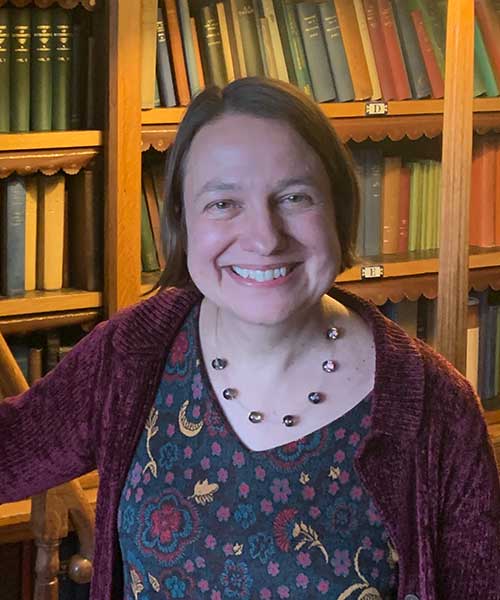
Playing Fair: Theatres and Fairs in the Time of Shakespeare
Tiffany Stern
Professor of Shakespeare and Early Modern Drama, University of Birmingham
Friday, April 12 at 3:30 p.m.
Ruane Center for the Humanities 105
This talk tells the story of London fairs on the one hand, and theatre on the other, in the time of Shakespeare. It focuses on two fairs—Bartholomew Fair and Southwark Fair—and on moments in the plays of Shakespeare that arise from fairground activity. Considering performing monkeys, magic tricks and puppet shows on the one hand, and looking at plays including Hamlet, Romeo and Juliet, and The Tempest on the other (quotations are explained in context, so no expertise in these plays is required), it reveals how London fairs and theatre were interdependent in ways that are thought-provoking and, sometimes, hilarious.
Read more about this event.
Tiffany Stern is Professor of Shakespeare and Early Modern Literature at The Shakespeare Institute, University of Birmingham, having previously been Professor of Early Modern Drama at the University of Oxford. Author or editor of twelve books and over sixty articles and chapters, she is general editor of the Norton Anthology of English Literature (16th century), New Mermaids Plays, and Arden Shakespeare Fourth Series. Her work combines literary criticism, theatre history and book history from the sixteenth to the eighteenth centuries. She specializes in the works of Shakespeare and his contemporaries, and the theatrical contexts that bring plays about. Her scholarship is widely used by theatre companies interested in historically inflected performances. She was elected Fellow of the British Academy in 2019.
April 17, 2024
In collaboration with the Dialogue, Inclusion, and Democracy (DID) Lab
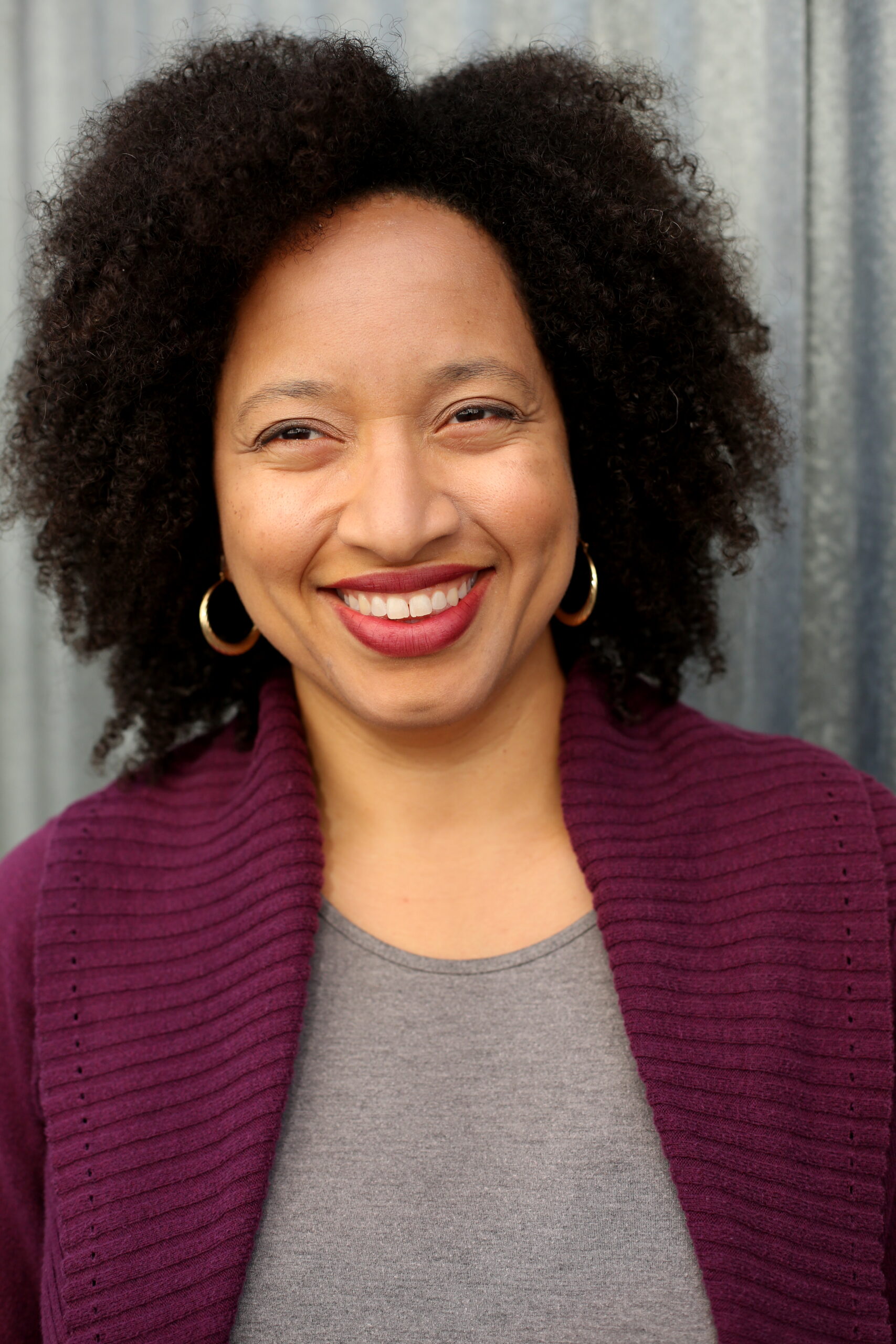
Belonging and Beloved Community
Allison Briscoe-Smith
Senior Fellow, Greater Good Science Center at University of California, Berkeley
Wednesday, April 17 at 4 p.m.
Moore Hall
In this interactive discussion, we will examine the ideals and principles of a beloved community and evidence-based techniques, mindsets, and practices that can help us get there. In particular we will learn about the research on belonging, deep listening, and conflict. We will also consider the possible intersections and conflicts with “D.E.I” — while deepening our understanding of what those terms might mean. Participants will leave with resources and guiding questions to help them learn more about these issues and to support their practice.
Read more about this event.
Allison Briscoe-Smith is a child clinical psychologist who specializes in trauma, issues of race, bridging and belonging. Dr. Briscoe-Smith earned her undergraduate degree from Harvard University and her clinical psychology Ph.D. from University of California Berkeley. She then went on to continue her specialization in trauma and ethnic minority mental health through internship and postdoctoral work at University of California San Francisco/San Francisco General Hospital. She currently serves as the Diversity Lead of Student Life at the University of Washington, as the founder and principal of Soft River Consultation and as a Senior Fellow at UC Berkeley’s Greater Good Science Center where she focuses on developing and implementing the science of bridging (connecting across our differences).
April 19, 2024
2024 Providence College Veritas Conference – John F. Fay ’68 Plenary Address
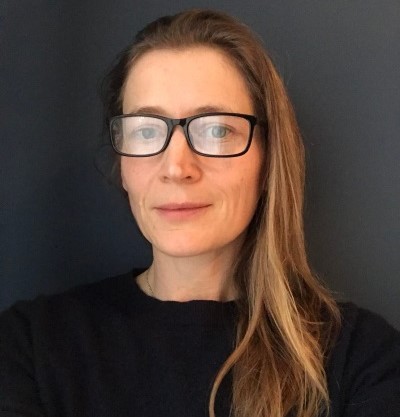
Immanentizing the Eschaton: America and the Spirit of Technicity
Mary Harrington
Public Intellectual and Contributing Editor, UnHerd
Friday, April 19 at 3:30 p.m.
Ruane 105
Relative to earlier epochs in human history, we live in a time of material abundance. We enjoy a technological mastery over nature of which earlier generations could only dream. Civil and voting rights have been extended to more members of developed Western societies than ever before. And we appear to command a growing self-determination even over our own biological nature due to advances in gene and medical technologies. In other words, we enjoy the fruits of “progress.” But what actually counts as genuine “progress”? By what standards can we evaluate the phenomena of “progress”? How might advancing “progress” take on a life of its own that may prove antithetical to genuine human flourishing? What resources does the Christian tradition – especially, the Catholic and Dominican tradition – have for thinking about and guiding the pursuit of “progress”? These and similar questions will be discussed at this year’s Veritas Conference (2024).
Read more about this event.
Ms. Harrington is a public intellectual and contributing editor at UnHerd. In her first book, Feminism Against Progress (Regnery, 2023), she asks, “Can you be a feminist if you don’t believe in progress?” She writes a Substack (Reactionary Feminist), and tweets as @moveincircles.
April 26, 2024
Co-sponsored by the School of Nursing and Health Sciences and a Community Grant by FIPS
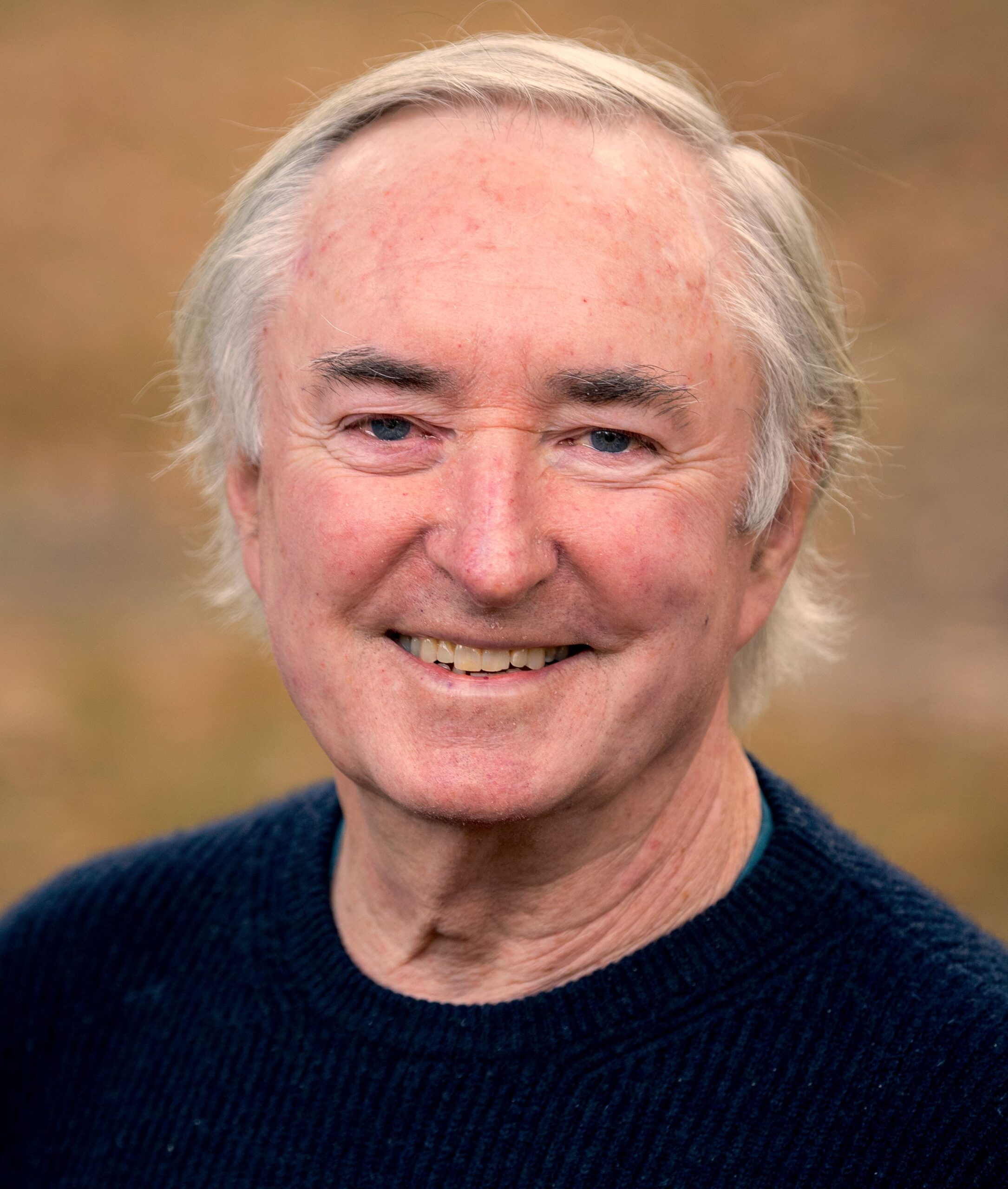
Health Care for the Homeless
Jim O’Connell, M.D.
President of Boston Health Care for the Homeless Program
Assistant Professor of Medicine, Harvard Medical School
Friday, April 26 at 3:30 p.m.
Ruane Center for the Humanities 105
Join us for an interesting and insightful conversation with Dr. Jim O’Connell on the founding and growth of the Boston Health Care for the Homeless Program. Dr. O’Connell’s journey took him from the halls of Harvard Medical School and Massachusetts General Hospital, where he completed his internal medicine residency, to the streets of Boston where he continues to take care of the “rough sleepers,” individuals who opt to shelter outdoors no matter the circumstances. What once seemed like a year of domestic service to a vulnerable population with complex health issues has turned into a life calling for Dr. O’Connell, who has been with BHCHP since its founding in 1985. Dr. O’Connell will discuss the seen and hidden world of unhoused individuals and his remarkable story of a mission-oriented group that defies every obstacle to provide support, friendship, and essential health care to the homeless.
Read more about this event.
Jim O’Connell, MD serves as the President of Boston Health Care for the Homeless Program and is an Assistant Professor of Medicine at Harvard Medical School. Dr. O’Connell received his medical degree from Harvard University in 1982 and completed residency in Internal Medicine at Massachusetts General Hospital. In 1985, he began full-time clinical work with homeless individuals as the founding physician of the program. Working with the MGH Laboratory of Computer Science, Dr. O’Connell designed and implemented the nation’s first computerized medical record for a homeless program. Dr. O’Connell served as the National Program Director of the Homeless Families Program of the Robert Wood Johnson Foundation and the U.S. Department of Housing and Urban Development. Dr. O’Connell is the editor of The Health Care of Homeless Persons: A Manual of Communicable Diseases and Common Problems in Shelters and on the Streets. His articles have appeared in the New England Journal of Medicine, the Journal of the American Medical Association, Circulation, the American Journal of Public Health, the Journal of Clinical Ethics, and several other medical journals. His first book, Stories from the Shadows: Reflections of a Street Doctor, was published in 2015. His work at BHCHP is the subject of New York Times Best Seller, Rough Sleepers: Dr. Jim O’Connell’s Urgent Mission to Bring Healing to Homeless People by Tracy Kidder, published in 2023.





